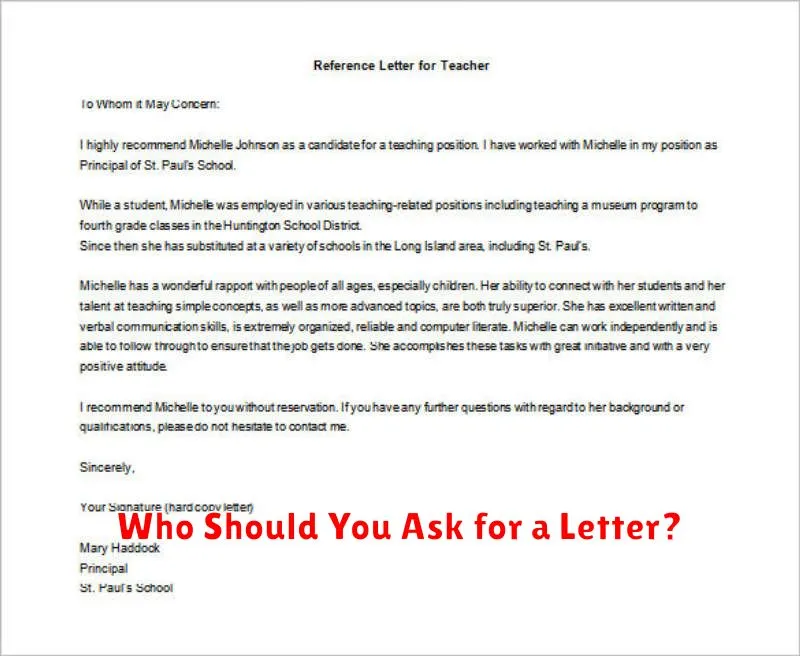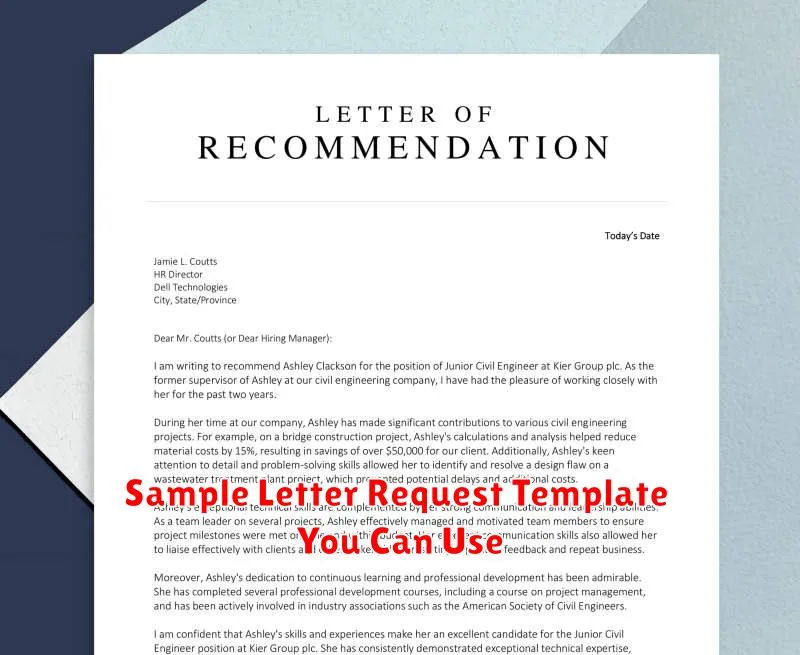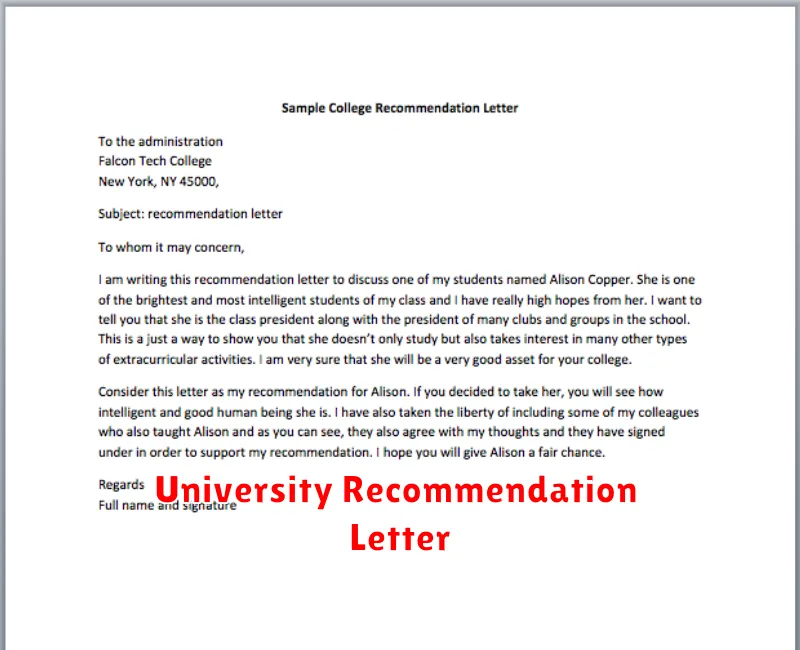Securing a place in a university program of your choice can be a competitive process, and having strong letters of recommendation is a crucial component of a successful application. In this comprehensive guide on How to Get Letters of Recommendation for University Applications, we delve into the essentials of obtaining impactful endorsements from your mentors and instructors. This article explores the strategies for selecting the right recommenders, tips for making the request effectively, and insights into what makes a recommendation truly stand out. Whether you are seeking admission into an undergraduate program or pursuing advanced studies, mastering the art of acquiring compelling letters of recommendation is vital in highlighting your academic and personal strengths, and ultimately, unlocking new educational opportunities.
Why Letters of Recommendation Matter
Letters of recommendation are a crucial component of university applications, offering a unique insight into a candidate’s abilities and character beyond what is reflected by grades and test scores. These letters serve as a testament to the applicant’s academic potential and personal qualities, providing a perspective that is often more personal and detailed than other application elements.
Admissions committees highly value these letters as they come from individuals who have closely observed the applicant in an academic or professional setting. A well-crafted letter of recommendation can highlight the applicant’s skills, such as leadership, teamwork, and communication, which are essential attributes for success in higher education and beyond.
Furthermore, a letter from a respected individual in the field can lend additional credibility to an application, potentially setting the candidate apart from other applicants. Given their importance, it is vital for applicants to select recommenders who can speak specifically to their strengths and significant experiences, thereby enhancing their application package.
In summary, letters of recommendation are more than mere formalities; they are key differentiators that can significantly influence the admissions decision. They validate the applicant’s dedication, achievements, and readiness for the challenges of university study, making them an indispensable part of the application process.
Who Should You Ask for a Letter?

When seeking a letter of recommendation for university applications, choosing the right person is crucial. Ideally, the person should be familiar with your academic achievements, work ethic, and personal growth. This allows them to provide a comprehensive and personalized account of your abilities.
Start by considering your high school teachers who taught subjects related to your intended field of study. These individuals can highlight your academic strengths in relevant areas. Additionally, they can provide insight into your classroom performance and contributions to class discussions.
If you have participated in any extracurricular activities, sports, or clubs, a supervisor or coach can attest to your leadership skills and teamwork abilities. This perspective is invaluable, showcasing a well-rounded character and a willingness to engage beyond academics.
Furthermore, if you held any internships or part-time jobs, a recommendation from your employer or manager could illustrate your professional skills and dedication. They can share examples of your initiative and ability to thrive in a work environment.
Ultimately, choose individuals who know you well enough to provide a personal and credible account of your capabilities and character. A well-written recommendation from the right person can significantly enhance your university application.
How to Request a Strong Letter Professionally
Requesting a strong letter of recommendation is an essential step in your university application process. To ensure a compelling letter, approach your potential recommender with courtesy and thoughtfulness.
Start by choosing someone who knows you well academically or professionally, such as a previous professor or employer. When reaching out, whether by email or in person, clearly state your purpose and provide detailed information about the program or university you are applying to.
Express your appreciation for their time and willingness to support your application. Providing them with specific examples of your achievements and skills can help them write a more personalized and impactful letter.
Be sure to give your recommender ample time to write the letter. A good rule of thumb is to request the letter at least 4-6 weeks before the application deadline. This shows respect for their schedule and allows them to prepare a thoughtful and detailed recommendation.
Lastly, follow up with a thank you note after they have submitted the letter. This not only shows your gratitude but also reinforces the professional relationship you have developed.
What to Include in Your Request Email
When crafting a request email for a letter of recommendation, it is essential to address the recipient respectfully and professionally. Start your email with a polite greeting, using their proper title and full name to show courtesy.
Include a clear and concise purpose for your email. Clearly mention that you are seeking a letter of recommendation and specify the program or university you are applying to. Providing context helps the recommender understand the importance of their role in your application.
Highlight your relevant achievements and experiences to aid your recommender in writing a strong letter. Include specific examples of your academic performance, extracurricular activities, or attributes that the program values. This background information ensures the letter is tailored and impactful.
It is important to offer guidance and deadlines for the letter of recommendation. Clearly outline when the letter needs to be submitted and any specific formats or platforms required by the university. This helps the recommender plan their time accordingly.
Conclude with a grateful tone, expressing your appreciation for their consideration and support. A strong closing reinforces your gratitude and leaves a positive impression.
Give Recommenders Enough Time and Information
Securing strong letters of recommendation is crucial for university applications. To achieve this, it is essential to give your recommenders ample time and the necessary information to write a compelling letter. Start by initiating the request well in advance of the application deadlines. Ideally, approach them at least a month before the due date.
Providing your recommenders with comprehensive information about your academic achievements, extracurricular activities, and any specific experiences or skills you would like them to highlight can be extremely helpful. Consider preparing a detailed resume or a bullets-point list of your accomplishments pertinent to your application.
In addition to personal achievements, furnish them with relevant details about the university programs you are applying to. This includes the degree program, specializations, and any particular areas of emphasis that align with your career goals. Such context allows your recommenders to tailor their letters more effectively, aligning their narratives with the vision of your prospective program.
Remember that your recommenders might have multiple commitments, so respecting their time and making the process as smooth as possible can only work in your favor. Communicate clearly and offer to meet or provide additional materials if they request more information. By facilitating the process, you stand a better chance of securing impactful letters of recommendation that enhance your application profile.
Follow Up with Polite Reminders
Once you have requested letters of recommendation, it is important to follow up with those who agreed to write them. A gentle but firm follow-up can ensure your application process remains on track.
Start by sending a thank-you note as soon as they agree to write the letter. This shows your appreciation and sets a positive tone for further communication.
If the deadline is near and you haven’t heard back, consider sending a polite reminder. Keep your tone respectful and express understanding of their busy schedule. Highlight the due date for submission and offer any additional information they might require.
Remember to be considerate and patient. Multiple follow-ups can appear intrusive, so ensure your reminders are spaced out sufficiently. Ultimately, timely and polite reminders can help maintain a good relationship with your recommenders and ensure your application is complete.
Thank Your Recommenders After Submission
Once your university applications have been submitted, it’s essential to express gratitude to those who have supported you by writing your letters of recommendation. This not only reflects your appreciation but also helps maintain a positive relationship.
Begin by sending a personalized thank-you note to each recommender. Acknowledge their effort and time, and highlight how their support has positively impacted your application process. This gesture can be done through an email or a handwritten card, whichever is deemed more personal.
Include specific details in your note, such as mentioning something unique in their letter or specific advice they gave you. This shows that you have truly appreciated their individual contribution. It also reinforces your sincerity and strengthens your connection with them.
Additionally, keep your recommenders updated about the status of your applications. Informing them about your admissions results not only keeps them in the loop but also affirms their instrumental role in your academic journey.
By acknowledging your recommenders’ contributions, you not only express appreciation but also ensure future support, should you need additional guidance or recommendations in the future.
Sample Letter Request Template You Can Use

When requesting a letter of recommendation for your university applications, it is essential to craft a professional and polite request. Below is a sample template that you can customize:
Subject: Request for Letter of Recommendation
Dear [Professor’s/Teacher’s Name],
I hope this message finds you well. I am reaching out to request your support in writing a letter of recommendation for my university application to [University Name]. As you know, I have thoroughly enjoyed and benefited from your class in [Subject], and have grown significantly in my academic journey under your guidance.
Given your understanding of my capabilities and achievements, I believe that your perspective on my academic pursuits would provide a comprehensive insight into my potential contributions at [University Name].
The application deadline is on [Deadline Date], and I would be grateful if you could submit the recommendation letter by then. Please let me know if there is any information or documents that you would require from my side to assist in crafting the letter.
Thank you very much for considering this request. I truly appreciate your time and support.
Warm regards,
[Your Full Name]
[Your Contact Information]
[Your Student ID, if applicable]

